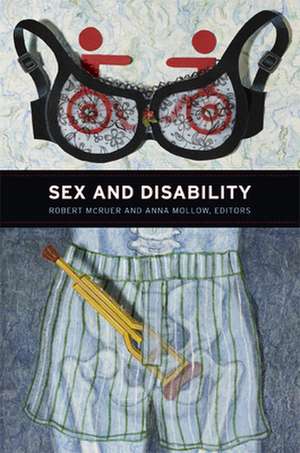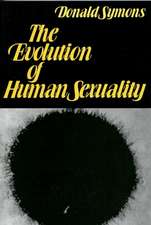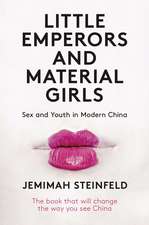Sex and Disability
Autor Robert Mcruer, Anna Mollowen Limba Engleză Paperback – 3 ian 2012
Preț: 195.46 lei
Nou
Puncte Express: 293
Preț estimativ în valută:
37.40€ • 39.33$ • 30.90£
37.40€ • 39.33$ • 30.90£
Carte disponibilă
Livrare economică 26 martie-09 aprilie
Livrare express 12-18 martie pentru 35.91 lei
Preluare comenzi: 021 569.72.76
Specificații
ISBN-13: 9780822351542
ISBN-10: 0822351544
Pagini: 432
Ilustrații: 11 illustrations, 3 figures
Dimensiuni: 158 x 237 x 26 mm
Greutate: 0.59 kg
Editura: MD – Duke University Press
ISBN-10: 0822351544
Pagini: 432
Ilustrații: 11 illustrations, 3 figures
Dimensiuni: 158 x 237 x 26 mm
Greutate: 0.59 kg
Editura: MD – Duke University Press
Cuprins
AcknowledgmentsIntroduction / Anna Mollow and Robert McRuer<B>Part 1: Accesss</B>1 A sexual culture for disabled people / Tobin Siebers; 2 Bridging theory and experience: A critical-interpretive ethnography of sexuality and disability / Russell Shuttleworth; The sexualised body of the child: Parents and the politics of ‘voluntary’ sterilization of people labeled intellectually disabled / Michel Desjardins<B>Part 11: Histories</B>4 Dismembering the lynch mob: Intersecting narratives of disability, race and sexual menace / Michelle Jarman; 5 “The cruel spectacle”: The extraordinary body eroticized in Lucas Malet’s <I>The history of Sir Richard Calmady</I> / Rachel O’Connell; 6 Pregnant men: Modernism, disability and biofuturity / Michael Davidson; 7 Touching histories: Personality, disability and sex in the 1930s / David Serlin<B>Part 111: Spaces</B>8 Leading with your head: On the borders of disability, sexuality and the nation / Nicole Markotic and Robert McRuer; 9 Normate sex and its discontents / Abby L. Wilkerson; 10 I’m not the man I used to be: Sex, HIV and cultural “responsibility” / Chris Bell<B>Part 1V: Lives</B>11 Golem Girl gets lucky / Riva Lehrer; 12 Fingered / Lezlie Frye; 13 Sex as “Spock”: Autism, sexuality and autobiographical narrative / Rachael Groner<B>Part V: Desires</B>14 Is sex disability? Queer theory and the disability drive / Anna Mollow; 15 An excess of sex: Sex addiction as disability / Lennard J. Davis; 16 Desire and disgust: My adventure in devoteeism / Alison Kafer; 17 Hearing aid lovers, pretenders and deaf wannabes: The fetishizing of hearing / Kristen Harmon Works cited; Contributors; Index
Recenzii
“This riveting collection of essays is a fascinating rethinking of what sex and disability could feel like together, affirmatively and generatively. Opening with a candid, frank introduction that moves deftly between the autobiographical and the political, the volume mounts a serious challenge to the sex-ableism of queer theory and the tendency to think of sex and disability in negative terms. Having read about pregnant men, the vagaries of touch, amputee devotees, and sex addiction, the reader will emerge uncertain about what exactly sex is, who has it, and with what. More trenchantly, these works demand an acknowledgement of how notions of ableism severely limit broader experiences of sexual erotics, intimacy, and arousal. Kudos to the editors for undertaking this important project.” Jasbir Puar, author of <I>Terrorist Assemblages: Homonationalism in Queer Times</I><BR><BR>“This is a big collection, literally, politically, and theoretically. With essays drawing on sociology, anthropology, literary studies, history, and cultural studies, as well as some more lyrical, performative, and autobiographical, <I>Sex and Disability</I> will be indispensable for a wide range of audiences in gender studies, disability studies, queer studies and beyond.” Siobhan B. Somerville, author of <I>Queering the Color Line: Race and the Invention of Homosexuality in American Culture</I><BR><BR>"Disability and sex have long been intersecting topics of great significance in the disability-rights community, but more often than not have been treated as curiosities by non-disabled people... The new anthology <I>Sex and Disability</I> posits that people with disabilities are a group that has, by and large, either been stigmatized by the able because of their supposed "abnormal" sexuality, or desexualized entirely.... <I>Sex and Disability</I> is worth picking up just for the variety of topics it covers - queer sexuality, HIV/AIDS, sexual narratives in autobiographical works by people with autism spectrum disorders Murderball</I> and athletic disability nationalism, the disability politics of racist hate crimes, gender politics in the online amputee/devotee community, and more." Anna Hamilton, <I>Bitch</I>, Summer 2012<BR><BR>
"This riveting collection of essays is a fascinating rethinking of what sex and disability could feel like together, affirmatively and generatively. Opening with a candid, frank introduction that moves deftly between the autobiographical and the political, the volume mounts a serious challenge to the sex-ableism of queer theory and the tendency to think of sex and disability in negative terms. Having read about pregnant men, the vagaries of touch, amputee devotees, and sex addiction, the reader will emerge uncertain about what exactly sex is, who has it, and with what. More trenchantly, these works demand an acknowledgement of how notions of ableism severely limit broader experiences of sexual erotics, intimacy, and arousal. Kudos to the editors for undertaking this important project." Jasbir Puar, author of Terrorist Assemblages: Homonationalism in Queer Times "This is a big collection, literally, politically, and theoretically. With essays drawing on sociology, anthropology, literary studies, history, and cultural studies, as well as some more lyrical, performative, and autobiographical, Sex and Disability will be indispensable for a wide range of audiences in gender studies, disability studies, queer studies and beyond." Siobhan B. Somerville, author of Queering the Color Line: Race and the Invention of Homosexuality in American Culture "Disability and sex have long been intersecting topics of great significance in the disability-rights community, but more often than not have been treated as curiosities by non-disabled people... The new anthology Sex and Disability posits that people with disabilities are a group that has, by and large, either been stigmatized by the able because of their supposed "abnormal" sexuality, or desexualized entirely... Sex and Disability is worth picking up just for the variety of topics it covers - queer sexuality, HIV/AIDS, sexual narratives in autobiographical works by people with autism spectrum disorders (ASD), the 2005 documentary Murderball and athletic disability nationalism, the disability politics of racist hate crimes, gender politics in the online amputee/devotee community, and more." Anna Hamilton, Bitch, Summer 2012
"This riveting collection of essays is a fascinating rethinking of what sex and disability could feel like together, affirmatively and generatively. Opening with a candid, frank introduction that moves deftly between the autobiographical and the political, the volume mounts a serious challenge to the sex-ableism of queer theory and the tendency to think of sex and disability in negative terms. Having read about pregnant men, the vagaries of touch, amputee devotees, and sex addiction, the reader will emerge uncertain about what exactly sex is, who has it, and with what. More trenchantly, these works demand an acknowledgement of how notions of ableism severely limit broader experiences of sexual erotics, intimacy, and arousal. Kudos to the editors for undertaking this important project." Jasbir Puar, author of Terrorist Assemblages: Homonationalism in Queer Times "This is a big collection, literally, politically, and theoretically. With essays drawing on sociology, anthropology, literary studies, history, and cultural studies, as well as some more lyrical, performative, and autobiographical, Sex and Disability will be indispensable for a wide range of audiences in gender studies, disability studies, queer studies and beyond." Siobhan B. Somerville, author of Queering the Color Line: Race and the Invention of Homosexuality in American Culture "Disability and sex have long been intersecting topics of great significance in the disability-rights community, but more often than not have been treated as curiosities by non-disabled people... The new anthology Sex and Disability posits that people with disabilities are a group that has, by and large, either been stigmatized by the able because of their supposed "abnormal" sexuality, or desexualized entirely... Sex and Disability is worth picking up just for the variety of topics it covers - queer sexuality, HIV/AIDS, sexual narratives in autobiographical works by people with autism spectrum disorders (ASD), the 2005 documentary Murderball and athletic disability nationalism, the disability politics of racist hate crimes, gender politics in the online amputee/devotee community, and more." Anna Hamilton, Bitch, Summer 2012
Notă biografică
Descriere
This collection brings together scholars and artists in disability studies, sexuality, queer theory, and feminism, to show how much sexuality studies and disability studies have to learn from each other. In particular, by focusing on the desires and sexual experiences of disabled persons, readers are forced to think about what counts as sex and sexuality differently. Similarly, some essays discuss the importance of visibility in what counts as disability, and the difficulty of claiming rights for limitations that can’t easily be seen. The essays are organized into five sections around key concepts (access, histories, spaces, lives, and desires) that together provide a more expansive and better-historicized view of both disability and sexuality.







